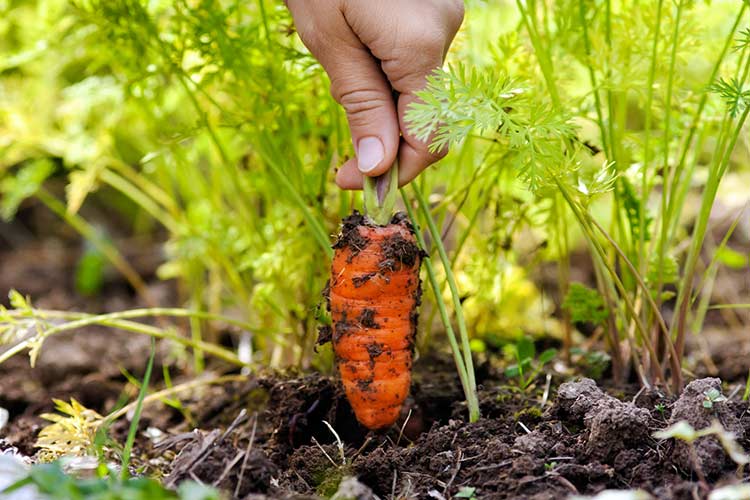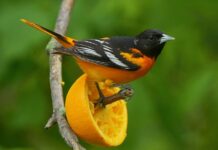While mental health experts warn of depression as a global epidemic, other researchers are discovering ways we trigger our natural production of happy chemicals (in our brain) that keep depression at bay, with surprising results. All you need to do is get your fingers dirty and grow your own food, that is, do gardening. Gardening is one of the most beneficial therapies for these purposes. Do you want to know more how this works? Keep reading that below you will know basically the reason for this.

For example, gardening is a key environmental trigger for two important chemicals that boost our immune systems and keep us happy: serotonin and dopamine. If you like gardening and permaculture, and you do it every day, the great news is that these substances constantly stimulate your immune system and also keep you in a happy state and these just happen while you manipulate your soil and harvest it.
A Serotonin ‘High’ While Gardening.
Getting your hands dirty in the garden can increase your serotonin levels: Contact with the soil and a specific soil bacterium, Mycobacterium vaccae , triggers the release of serotonin in the brain, according to research. Serotonin is a happy chemical, a natural antidepressant, and it strengthens the immune system. Lack of serotonin in the brain causes depression.
Ironically, in the face of our sanitary, germicidal, protective and obsessive health and safety clothing society, a lot of interesting research has emerged in recent years on how good dirt is for us, and childhood dirt deficiency is implicated in contributing to a wide spectrum of diseases, including allergies, asthma, and mental disorders.
Perhaps, by now you have an idea why you like compulsively gardening without gloves, and the feeling of sticking your bare hands in the dirt or compost heap.
Harvesting raises your dopamine.
Another interesting research concerns the release of dopamine in the brain when we harvest produce from the garden. Researchers hypothesize that this response evolved over nearly 200,000 years from hunter gatherers that, when they encountered food (gathered or hunted), a flux of dopamine was released in the brain’s reward center triggering a state of bliss or bliss. mild euphoria. Dopamine release can be triggered by sight (seeing a fruit or berry) and by smell, and also by the action of plucking the fruit.
The contemporary transfer of this brain function and elevated dopamine has now been recognized as the biological process at play in consumer addiction or compulsive shopping disorder. Of course, large retail corporations are using the findings to increase sales by triggering dopamine triggers in their environments and advertising.
Generate dopamine with sustainable activities.
Gardening enthusiasts often comment on the great joy they feel when working in the garden, especially when they harvest the “first of the season”, the first delicious strawberry to ripen or the appearance of the first young asparagus bud.
Some also mention that with this activity they have a degree of inherent immunity to the impulses that the system offers you with its attractive corporations that promote consumerism through this mechanism in our biochemistry. Perhaps it is that, as long-term gardeners, they have been receiving a constant load of dopamine that has reduced the need to seek other ways to appease this overriding, non-consumer instinct.
Of course, responses to dopamine are triggered by many other things and are related to addictive and impulsive behavior. Perhaps the trick is to rewire our brains to yearn for the garden’s dopamine hit and other more sustainable pursuits. It all comes down to the fact that we cannot change our yearning nature, but we can change the nature of what we long for.
Herbicides deplete serotonin and dopamine levels.
Of course, for all of the above to work effectively and maintain those happy levels of serotonin and dopamine, there is another prerequisite according to other interesting research. It seems that everything will work much better with organic soil and crops that have not been contaminated with Roundup herbicides or glyphosate. This condition also extends to what you eat, so ideally you would avoid consuming non-organic foods that have been grown on farmland with glyphosate.
A recent study in 2008 found that glyphosate, the active ingredient in Roundup, reduces serotonin and dopamine levels in mammals. Contrary to what Monsanto claims, glyphosate and other ingredients in Roundup perpetuate themselves in the environment, in soil, water, plants, and in the cells and organs of animals. One study found that glyphosate residues in cotton fabric made from GM (genetically modified) cotton can be absorbed into the skin and into our nervous and circulatory systems.
Gardening, the best therapy against stress.
It is not surprising that there is so much depression, stress and addictions and compulsive disorders in the quest to feel good and gardening can be one of the best stress therapies for all the chemicals that the brain will make you secrete while you run. Checked.
So, enjoy the garden, its cultivation and harvest, and the fresh organic food that you can get out of it. Ah! and make sure you have fun playing dirt every day.








